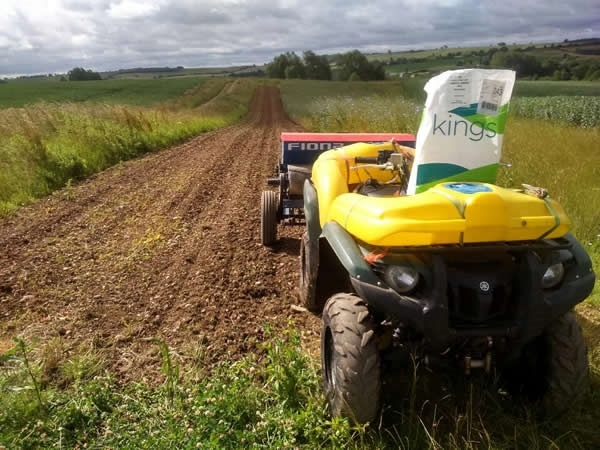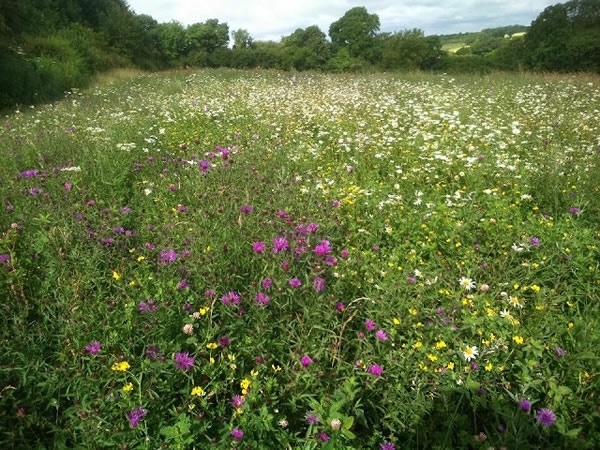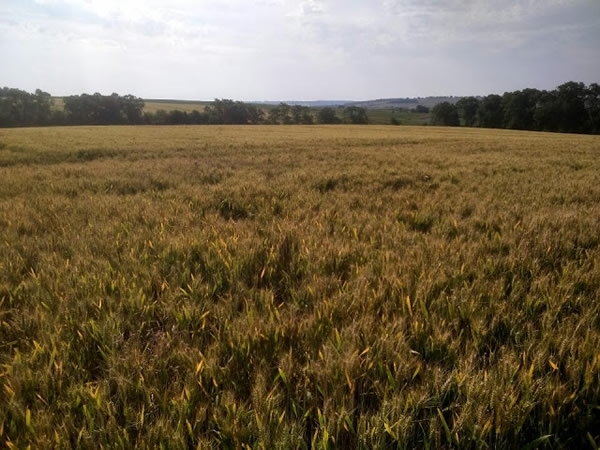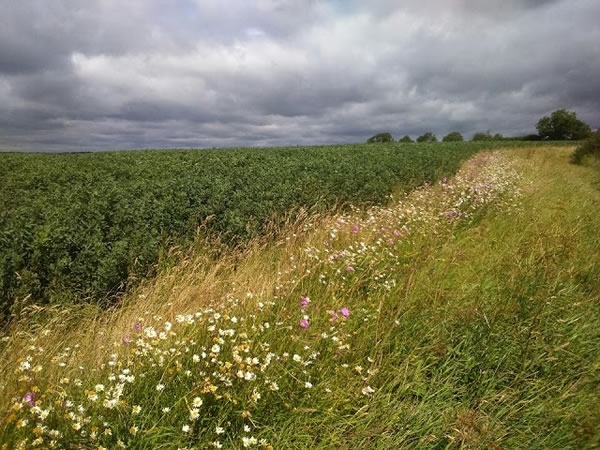Emma Duncan’s recent article in The Times about cutting greedy farmers down to size is an interesting viewpoint on the current Brexit debate. The GWCT Allerton Project’s Head of Farming Phil Jarvis offers an alternative view to some of the statements (in red) she made.
“I’m drawing a little comfort from the prospect of our liberation from the one bit of Europe I have always hated — the Common Agricultural Policy.”
The CAP is the system of agricultural subsidies implemented over 40 years ago to increase food productivity, security, market stability and reasonable prices to the consumer. It is far from perfect, but it has provided bountiful supplies of food for European consumers and enabled economic viability for a number of often neglected rural communities. Whether food is more important than other manufactured goods is debateable when supermarket shelves are full and supply exceeds demand.
It is both admirable and desirable to increase freer trade with the developing world, but I’m not sure I want to see the demise of the UK’s agricultural production and a return to a weedy wilderness as an alternative. Food safety and security with comparable production standards are required to keep a level playing field, of course unless we don’t want a UK farming industry. Be very careful exporting our productive landscape to one you have very little control over! Importing food from developing countries might also lead to food shortages in other parts of the world
Not all farming payments are production based; many help protect and enhance our farmland wildlife habitats. The three Greening elements and Cross Compliance all help protect our environment, while Environmental Stewardship helps enhance and rejuvenate wildlife habitats around crop production. Through the Campaign for the Farmed Environment, farmers voluntarily create thousands of acres of habitat to encourage biodiversity. As I drilled wild bird cover for winter feeding, I noticed a plethora of wild flowers, providing a bountiful food source to our resident invertebrates and pollinators, as well as a diverse array of crops in the landscape.
 Sowing wild bird cover for feeding over the winter period
Sowing wild bird cover for feeding over the winter period
 A plethora of wild flowers, providing a bountiful food source to our resident invertebrates and pollinator
A plethora of wild flowers, providing a bountiful food source to our resident invertebrates and pollinator
The crops I grow are part of my commitment to feed a growing population and make no excuse for such a stance. This is against a backdrop of challenging weather, increasing concerns on climate change and market volatility.
 The crops I grow are part of my commitment to feed a growing population
The crops I grow are part of my commitment to feed a growing population
“If we cut subsidies, farming will shrink and land prices fall. That will free up land for other uses. One is housing: we desperately need houses for our young people, and lower land prices will make building them more affordable. Another is a healthier environment.” “The subsidy regime encourages a sterile monoculture: it condemns the Yorkshire Wolds to barley and wheat as far as the eye can see and denudes the Welsh hills by covering them with a surplus of sheep.”
A healthier environment is not necessarily achieved by replacing a ‘sterile monoculture’ with building more houses for ‘our young people’
What is this sterile monoculture of wheat, barley and sheep expressed in the article? The Yorkshire Wolds and Welsh hills are some of the most popular rural tourist locations featuring a combination of stunning landscape; much of which is farmed.
“a poll in Farmers Weekly just before the vote suggested that 58 per cent (of farmers) were Leavers and 31 per cent Remainers ….. These genetically modified turkeys voted for Christmas.”>/span>
I resent being called a ‘genetically modified turkey’. The implication that genetic modification is an agricultural practice in the UK, is both incorrect and misleading.
The National Farmers Union works hard to represent its members and wants a strong vibrant United Kingdom agricultural policy in the years ahead. This will only be achieved with strong functional and fair markets enabling farmers to run profitable businesses. However, this can be achieved by building upon farming’s environmental role, allowing all farmers to care for the countryside, wildlife and mitigate climate change.

This is about a sustainable future for food production and responsible environmental management.
British agricultural policy is about a balance between food production and responsible environmental management. As long as legislation and regulation are proportionate and not bureaucratic and counterproductive we can continue to enjoy productive vibrant sunlit uplands.
Working for a bright future for British agriculture will mean a bright future for the British landscape
I invite Emma Duncan to visit the GWCT Allerton Project, where the more positive aspects of the CAP; soil health, food production and environmental enhancement are key ingredients of our sustainable future.
 Get the FREE weekly GWCT newsletter
Get the FREE weekly GWCT newsletter
Get all of Phil's and the GWCT's latest blog updates sent straight to your inbox each Tuesday.
Sign up FREE to the Weekly GWCT Newsletter >